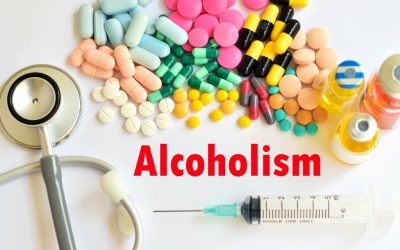These facilities still exist today and are used primarily for those who have been incarcerated or are unhoused. Halfway houses are often designed specifically for those that received treatment for addiction to drugs or alcohol while in prison. Halfway houses can be government funded or run by private organizations that receive government grants.
Recovery Housing Scholarship

They not only keep the environment safe for everyone but also teach valuable life skills that are essential in your journey towards a fulfilling, sober life. Sober living homes are more than just a place to stay; they’re communities aimed at fostering healing and growth. Here, you’re surrounded by individuals who understand the challenges of addiction recovery firsthand.
Sea Change/VSL Madison House
Recovery housing is specifically designed to support individuals with substance use issues to initiate and sustain long-term recovery. These houses or housing programs may go by many names such as Oxford Houses, sober living, recovery homes recovery http://www.alrage.ru/player_info.php?nick=Gimlis residences, and therapeutic communities. All sober living homes have a zero-tolerance policy regarding the use of drugs or alcohol. Usually, residents have recently completed inpatient or intensive outpatient treatment for substance use addiction.
Rise Above Sober Homes
- A tailored aftercare plan paired with a relapse prevention plan can help you stay away from triggers.
- Our primary purpose is to foster long-term sobriety through the cultivation of accountability, camaraderie, & character development.
- The risk of relapse when someone leaves addiction treatment is particularly concerning.
People who live in sober homes report that they are non-judgmental and safe spaces where they can focus on their continued recovery. As the others in the house are in the same situation, they can be authentic without having to explain their addiction or recovery needs. By encouraging a sense of community and togetherness, recovering people http://www.endeav.org/page.php?id=65 are motivated to bond with others, support each other, and continue sobriety to retain their place in the house. There is a continuum of care in substance abuse treatment that includes sober living. Anyone who is being discharged successfully from an inpatient rehab setting should consider transitioning to a sober living home.

With some exceptions, sober living homes usually aren’t eligible for insurance coverage because they’re not considered a treatment facility by the government. This is because sober living homes don’t offer treatment as rehab facilities do. While this seems like a disadvantage, paying rent can help a resident continue responsible financial habits. As long as you are actively pursuing your recovery in some way, abiding by community rules, and paying all dues, you should be free to remain in a sober living community for as long as necessary.
- These homes offer numerous benefits that can significantly improve your chances of maintaining long-term sobriety and leading a healthier, more fulfilling life.
- The average stay in a sober living home is 90 days, but arrangements can be made for a longer stay.
- We also offer 2nd phase housing for those that have completed our program.
Fred Brown’s Recovery Services — 239/241

Monetary donations are greatly appreciated and will allow NBS to help more individuals access recovery and an opportunity for a productive life. For example, a client drinking or using while in the program puts others at risk for relapse. A client not paying their fees can also hurt others if the program cannot meet basic expenses.
Not everyone who goes through drug or alcohol detox and rehab will need this step, but sober living can help reinforce what you’ve learned in rehab. With the assistance of a support network, it’s less likely that you will relapse. Recovery residences/sober living programs are certified by the National Alliance for Recovery Residences (NARR) state affiliate, Oklahoma Alliance for Recovery Residences (OKARR). ODMHSAS funds, both directly and through collaborative grant efforts, three recovery housing programs.
Rick Smith Recovery Residence
However, the way they work, the length of stay, and the funding options differ. The National Sober Living Association is dedicated to life-long recovery for individuals suffering from substance abuse and alcoholism. As people begin their recovery journey, http://portal-energo.ru/b2bcontext/research/page.php?parent=rubricator&child=getresearch&id=16920 far too many do not have access to affordable, ethically managed and accountable sober living homes. While a sober living house doesn’t offer individual or group counseling, it offers structure and support to help you maintain your sobriety.


0 Comments